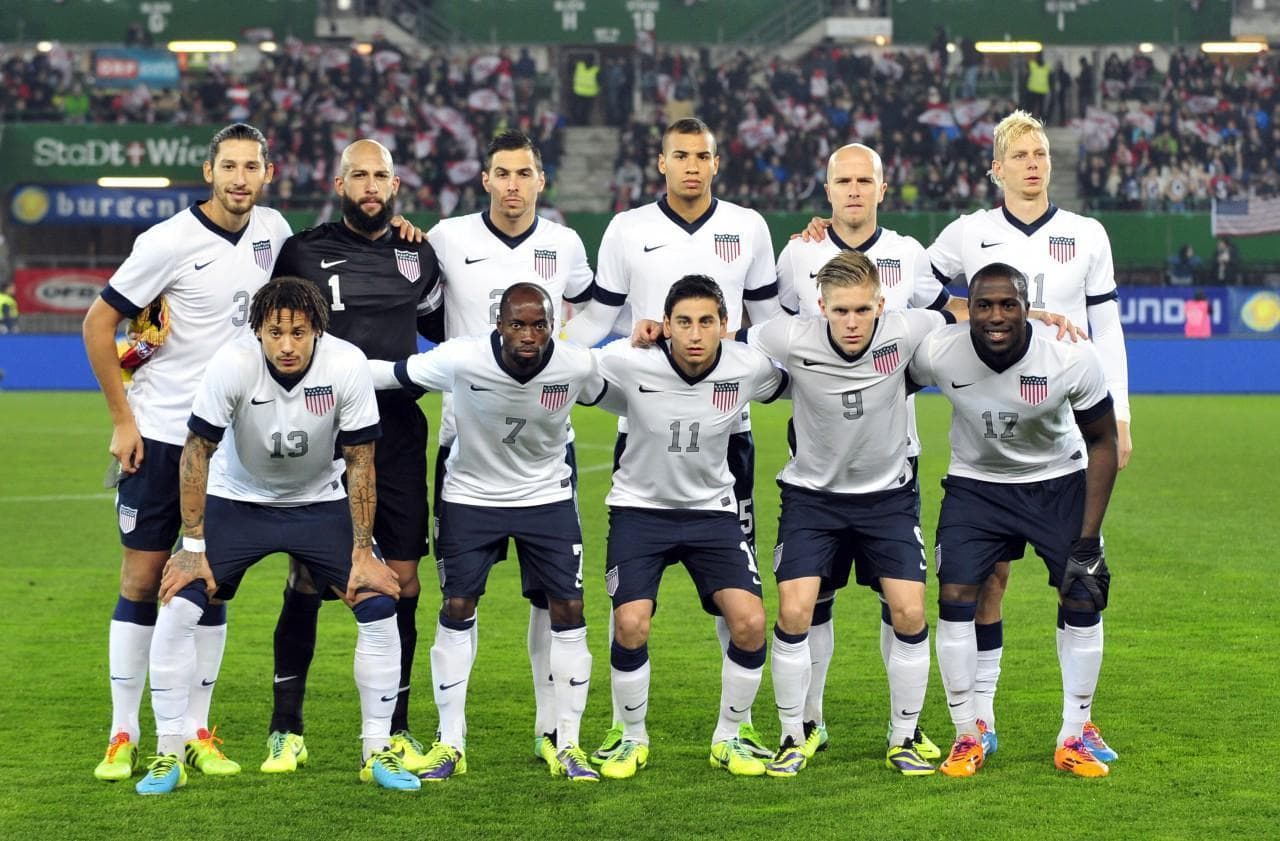Advertisement
In Depth
Assessing The World Cup Draw With ESPN's Roger Bennett
Resume
On Friday morning in Brazil the 32 soccer teams that will contest the World Cup there beginning in June learned the identities of their first round opponents. Some would say that the U.S. was placed into "the group of death." The U.S. is grouped with the teams ranked second and fifth in the world. ESPN's Roger Bennett joined Bill to share his thoughts on the draw.
BL: Well, I'll avoid the cliché this time around and simply ask you: Does any group include two opponents more formidable than Germany and Portugal which is what the US will face?
RB: For the Americans — it's not a group of death, Bill. It's more a group of mutually assured mass destruction. They've drawn Ghana. The opener against Ghana. The team to knock us out of the last two World Cups. It's like Batman meeting the Riddler again. It's exactly the same and equally predictable.
They're then going to play Cristiano Ronaldo's Portugal and then in a classic psychological battle as well as much as a footballing battle, they play Germany. Our coach Jürgen Klinsmann was coach of Germany in 2006. Just an incredibly difficult draw in which none of the games seem ones that you'd look forward to.
BL: Additionally, the U.S. will have to play in the one venue nobody wanted. Explain the disadvantage in visiting the Amazon.
RB: Brazil is a country, but it's really a continent. And the U.S. was handed the single worst travel schedule in the tournament. They have to travel 8,866 miles between games. They're not just traveling between cities. They're traveling between ecosystems. Manaus is an Amazonian city. They will be one of the first teams to play a game in the rain forest — unbelievably humid conditions. Then they'll travel a couple of thousand miles to play in the northeast of Brazil in a town where the weather's going to probably be about 90 degrees even though it's the Brazilian winter. So they're going to have to work out how to rebound not just from the games, but from very different micro-climates. Jürgen Klinsmann has definitely got his work cut out.
BL: Group B will give us a first-round reprise of the final of the 2010 World Cup. I wonder how 2010 champion Spain is going to feel about facing the Netherlands in Round One?
RB: It's the first time ever that the group stage will begin with a replay of a final. And the Netherlands have been absolutely potent in qualifying. The game's going to be played in the heat of Salvador. It would be one of the greatest sporting feats if the Spanish team can not only defend the World Cup but win two Euro Championships in between. It's like being back-to-back-to-back.
BL: The draw was kind to the host nation, but perhaps that's not an advantage Brazil especially needed.
RB: Brazil was handed an unbelievably wonderful group. They're going to be playing the recovering Mexico, the unfavored Cameroon, and a middling Croatia. I was in Brazil for the Confederations Cup, the practice tournament, last summer. Every single game they played FIFA would cut off the Brazilian national anthem after its first verse, but the crowd wouldn't let the players move. They sang a capella the second verse in the most stirring, whirling, emotional scenes. The players — many of them were moved to tears. And then they'd just run ragged their opponents for the first 30 minutes, always scoring early and I expect to see an incredible repeat of that.
BL: A lot of the news out of Brazil has been about the construction accidents and delays and demonstrations of all sorts. What's the likelihood that all the venues will be ready for games half a year hence?
RB: Every recent World Cup, Bill, has had the same kind of story line. But having been in Brazil for much of the summer and seeing the state of the infrastructure not just the stadia, which I do believe will be rushed and ready. Stadia are largely things you can throw money at to solve problems. But the airport infrastructure, the highways, the hotel stock, the airline capacity between cities, that's something that can't be changed dramatically. Many Americans are going to travel down, but for many Americans, just from a logistics perspective, this might be one to watch on their couch with a hand firmly across their eyes.
This segment aired on December 7, 2013.